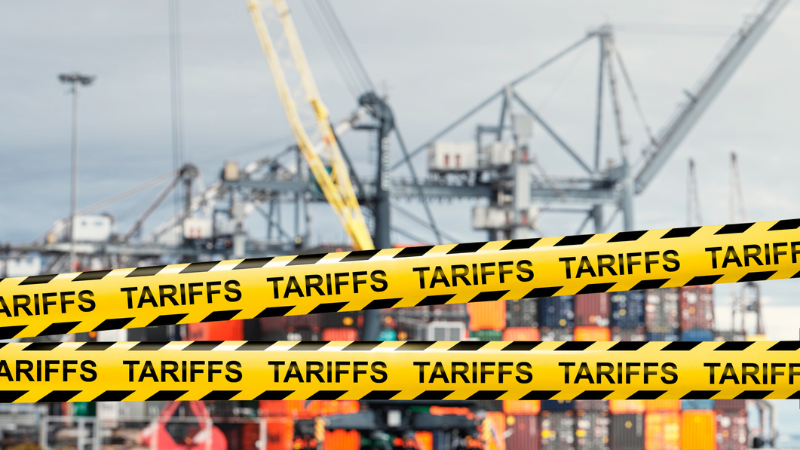
CHICAGO, April 2, 2025 — Food and beverages imported into the U.S. will be subjected to tariffs ranging from 10% to 46%, with the levy per country determined by the trade barriers that that nation has erected to discourage U.S. imports, President Trump announced Wednesday.
The president said the tariffs would not exceed half the import duties and other expenses that countries have imposed on U.S. exporters. He indicated that the full expense American companies pay to ship their goods into a foreign nation will be computed by the White House, so that “non-monetary” factors can also be taken into account.
He did not say what those intangible costs might be. But he aired a chart showing those computations to date for a select group of countries. The roster included China, which Trump said has in effect charged U.S. companies a 68% surcharge to export their goods to the Communist nation.
As of midnight Wednesday night, Chinese goods coming into the U.S. will be subject to a 34% tariff, or half the barrier China has erected.
Under that formula, imports from the European Union will be subject to a 20% tariff.
The highest duty will be imposed on Vietnamese imports, at 46%.
“They do it to us, we do it to them. Can’t get any simpler than that,” Trump said in revealing the tariffs, which he has imposed via an executive order.
He stressed the U.S. decided to hit back with tariffs equal to only half what other nations charge to be reciprocal but kind.
Goods from countries not on the list of the most protective nations will be subject to a 10% tariff as a “baseline,” Trump said.
He also repeated his intention of imposing a 25% tariff on all automobiles imported into the United States.
Earlier in the day, the president had referred to the day of the announcement as Liberation Day. At the press conference revealing the new protectionist policies, he opted for the tagline of “Make America Wealthy Again,” a play on his core political promise to make America great again.
Trump called the nation’s current low import duties a “national emergency that threatens our security and our very way of life,” exposing it to a dependence on foreign “friends and foes” for essential goods.
He sounded his theory that the protective measures will lead more foreign manufacturers to shift their production facilities into the United States while simultaneously prompting U.S. buyers to shop for local goods because of their lower prices.
"It will ultimately mean lower prices for consumers,” Trump asserted.
Check back for more on this developing story.
As Managing Editor for IFMA The Food Away from Home Association, Romeo is responsible for generating the group's news and feature content. He brings more than 40 years of experience in covering restaurants to the position.